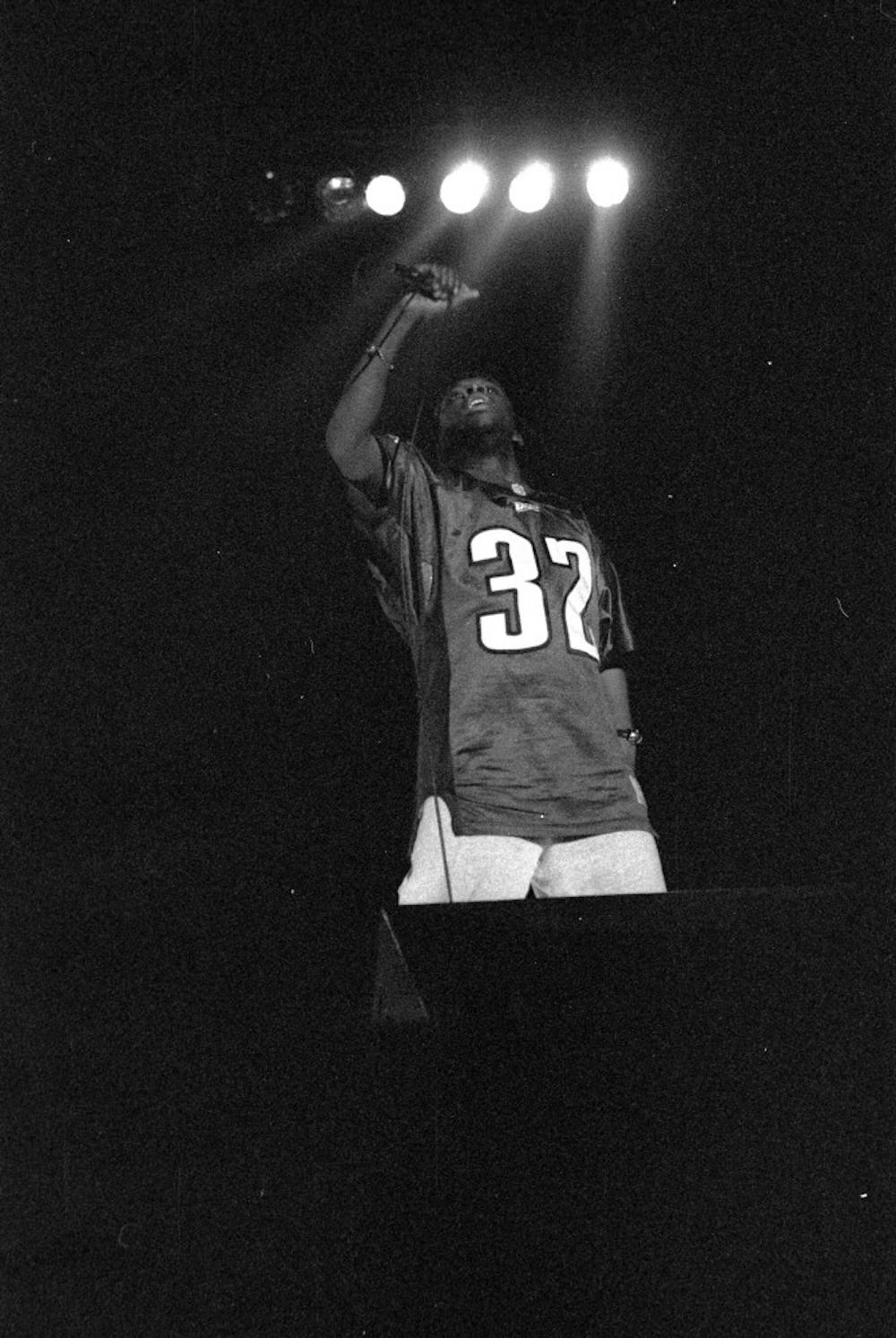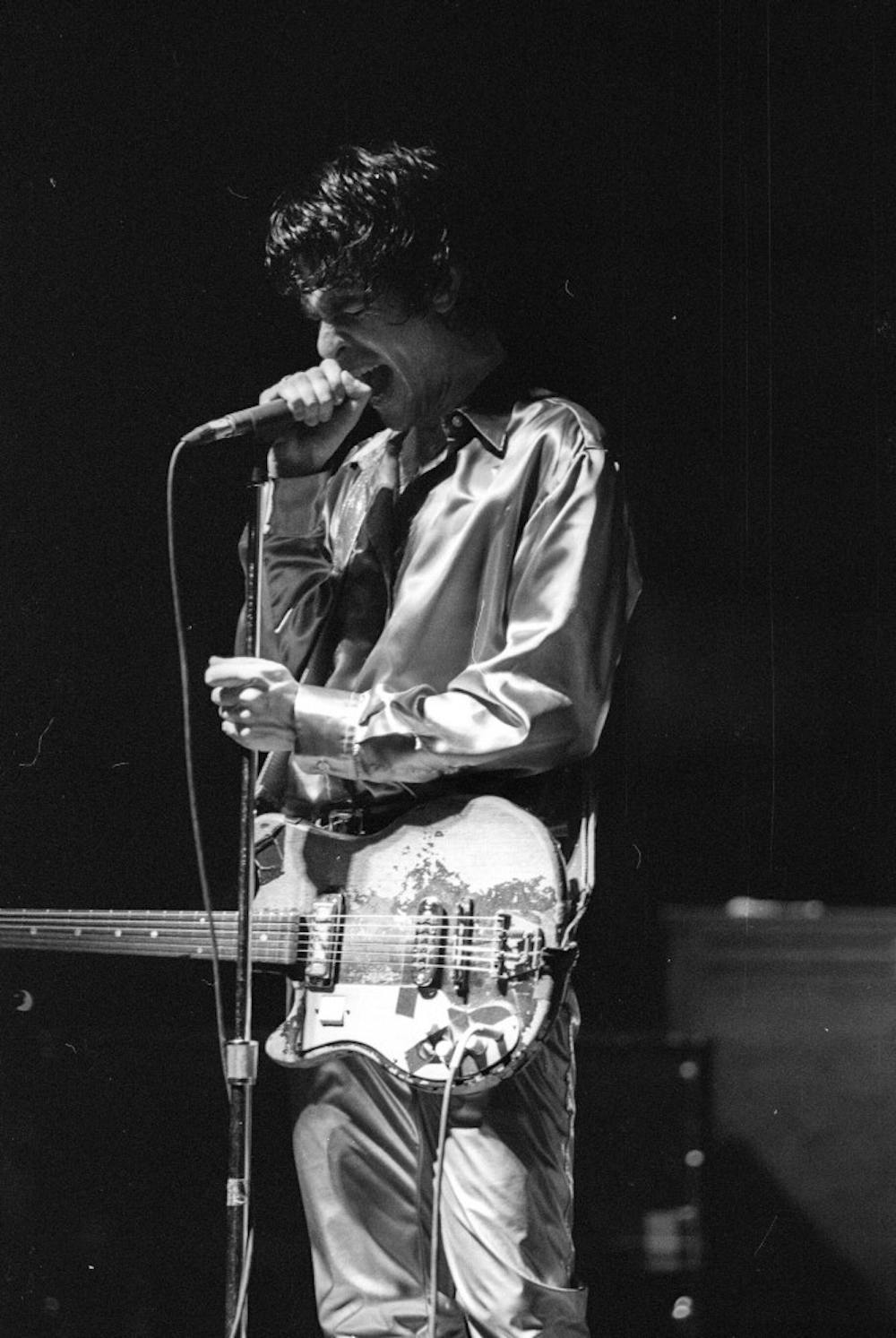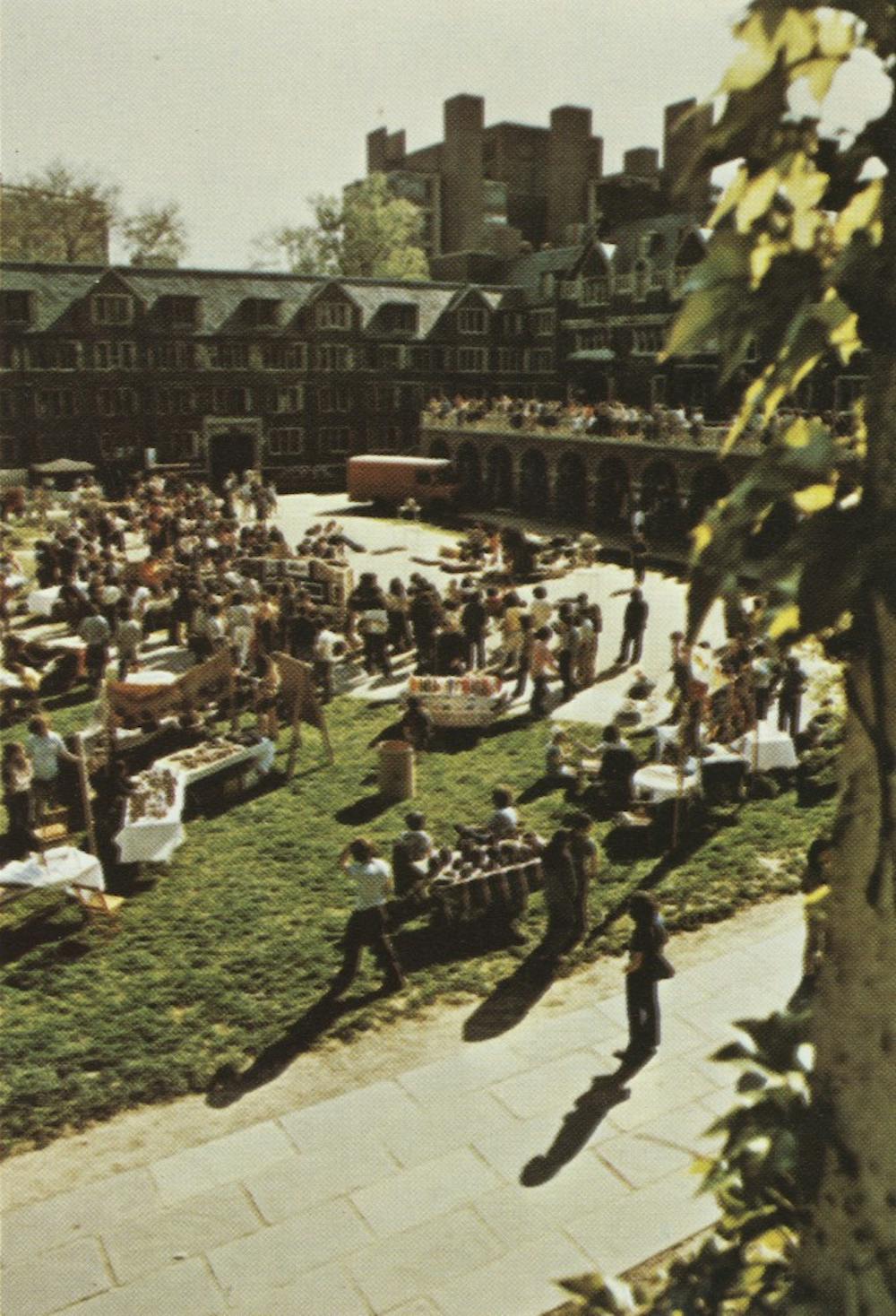It's April 14th, 1989. Heidi Tandy (C’ 92) keeps rum and champagne in her room. She doesn’t throw parties there; she lives on the first floor of Warwick in the Quad, too close in proximity to the Task Force patrol (Ed. note: no, not that task force). This year, the name of the game is discretion. Her fellow freshmen sip liquor from soda cans down near the Baby Quad.
Spring Fling the previous year had spring flung the festival into hot water. A Public Safety officer was hospitalized after a “student stampede.” Two Quad bathrooms had been trashed, sinks smashed and doors unhinged, and the $7,000 cost of repair was to be taken straight from the following year’s Fling budget. A walkie–talkie, pieces of a stage set, and six decorative palm trees were among the many items reported stolen.

Sumo wrestling in the Quad at fling 1984
Kim Morrisson, the Vice Provost for University Life, had decided to keep Fling in the Quad, rather than relocate it to Hill Field or cancel it altogether. But there were other consequences for the students’ follies: the formerly three–day festival was slashed a day, security was inflated, and perhaps most tangibly, a stricter alcohol policy was put into effect.
Heidi had heard stories of previous students smuggling booze into their dorm rooms in backpacks or laundry carts. Now, in 1989, every bag was to be checked upon entry and all glass bottles were to be confiscated. And definitely no more laundry carts.

A Tribe Called Quest performing at Fling 1997
“My year never knew differently about having an easy time carrying bottles of beer around,” she recalls. Despite the new rules and the student backlash, Heidi ended up having a lot of fun at Fling. She would later film the Fling performances for her show on University Television (UTV), where “rock bands like Chaos Theory and Rhino Lift were just as big a hit as Off the Beat or Counterparts.” Her senior year she would work as the marketing director for the event itself. Today, almost 30 years later, a Quad–based Spring Fling is officially a thing of the past.
April 14th, 2018 will mark the 45th annual Spring Fling. Far from the three–day debauchery of the ‘80s, it will last for just one day and will be held in Penn Park instead of the Quad.
For most alumni, Spring Fling was intrinsically tied to the Quad. But for many recent alumni, Spring Fling was largely spent off–campus at fraternity houses. Jonathan Bart, C ‘78, hears similar stories from his daughter, who graduated in 2015. He rocked out to Bonnie Raitt and The Birds; she spent fling with Kygo and Kesha. Jonathan notes shifts in music taste, in security measures, and in the student body. He regards this new age of Spring Fling as “a lot less social.”

Violent Femmes performing at Fling 1996
Although low turnout is cited as the primary motivator for the new Fling reforms, Jacob Gilson (C ‘15) anticipates that the move will have an inverse effect. “I can imagine having it moved down to Penn Park would significantly dislocate a lot of people,” he predicts. “People aren’t going to want to go all the way down there, if there’s an alternative that’s closer to them on campus.”
Others view the changes more favorably. Corinne Keller, president of the class of ‘85, thinks that the relocation may prove beneficial. “Anything that they can do on–campus to make things safer is good. It won’t be the same, but it’ll be its own thing.”
And Heidi Tandy, who cherished the danger of drinking in secret in the Quad, feels sympathy for the freshmen who will never know differently. "I don’t think they’ll know what they’re missing out on, and I feel bad, because it was such an enjoyable, fun experience.”
Fling's beginnings were much simpler—and much less logistically challenging. In 1973, sixteen years before Heidi's freshman year, a handful of undergraduates led by junior Bob Haft organized Arts Week. It was a three–day bash replete with dart games, basketball, and one beloved Eddie Egg Rolls food truck. A student jug band jazzed up McClelland, the event’s home base, and the evenings were packed with original plays and Mask and Wig sketches. Student artwork speckled the plaza. Haft proclaimed it an “expression of creativity on campus.”

Fling 2001
Less than a week later, freshman Helen Lawlor (N ‘76) sent out a thank–you in the Daily Pennsylvanian. “It was a huge success,” she wrote. “Hopefully, a sufficient number of Quad residents were impressed enough to make the Spring Fling an annual event—we really need it.”
Debbie Hirsch (W ‘85) looks back on the festival with fondness. Recently, a college friend sent her a picture from their junior year Fling in 1984. The two sit on blankets in the Quad, all smiles, and Debbie’s freshman brother reclines on an adjacent lounge chair with sunglasses on. “It looks like he’s at the beach,” Debbie laughs. “Everyone was out and about.”
What had begun as a standalone Arts Week rooted in the former festivities of the Skimmer Day boat races had become a monument of Penn tradition, a quintessential college experience, and a neverending source of controversy.
For Jonathan Bart, Spring Fling was “the social culmination of the year. It was the whole undergraduate student body getting together. [...] You had the entire Lower Quad as a concert hall. You had people hanging out of windows. You had everybody up on the McClelland landing.” It was what Bob Haft had first envisioned for his Arts Week—students congregated in the Quad, a performance with “the feeling of a Shakespearean theater.”

Spring Fling 1974 | Photo from University Archives and Records Center
Recently, Jonathan attended his 40th class reunion. There, he was surprised to discover that classmate Keven McDonald (C ‘78) 1978 Ivy League Player of the Year and NBA draft, was slated to attend Princeton but chose Penn after seeing Fling. “[Spring Fling] was a selling point for the school, once upon a time,” Jonathan reflects. “Times change. The center of student interest isn’t necessarily on–campus any more. It had a good run; the students now have to make their own experiences.”

